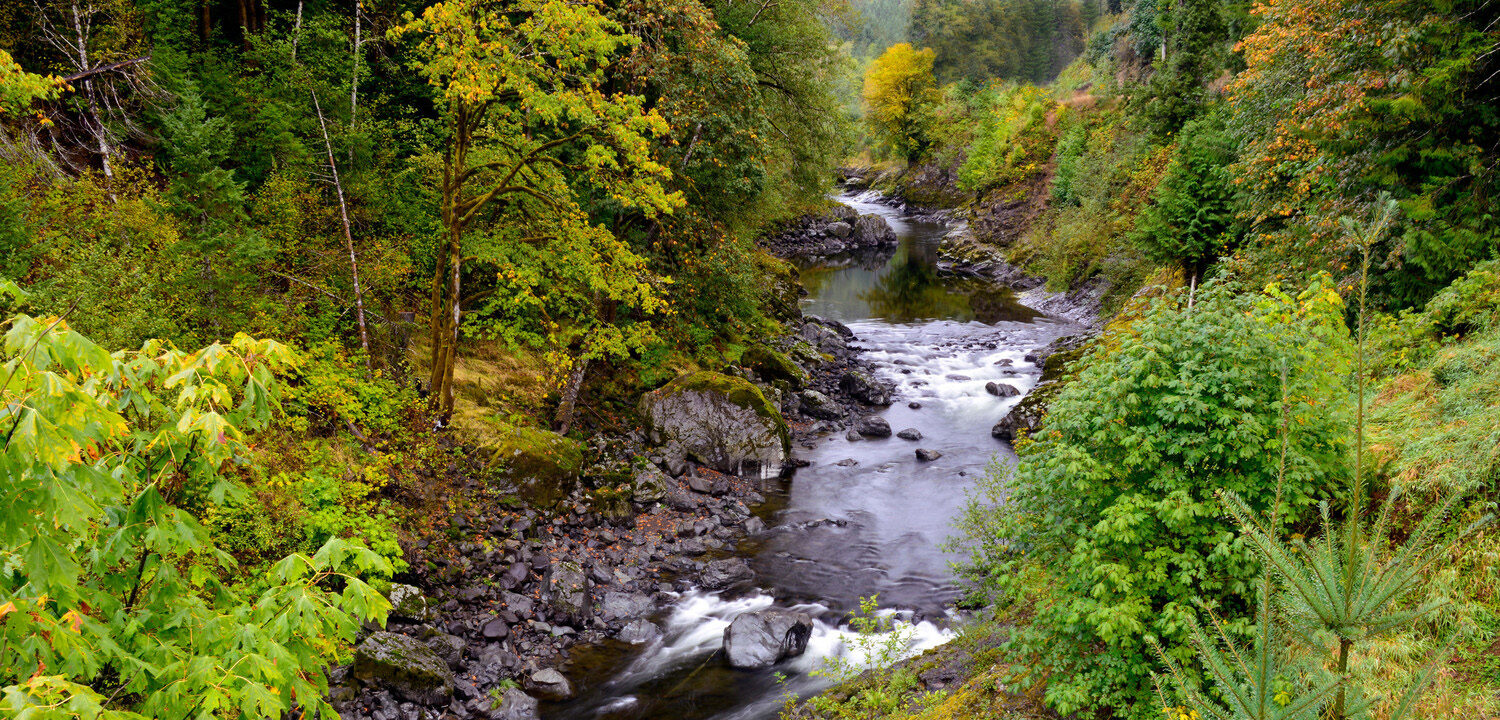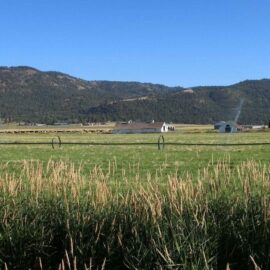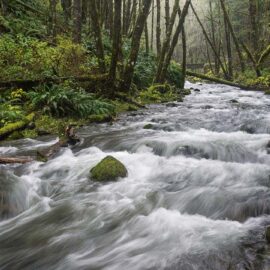As the 82nd Assembly convenes, we’re focused on locking in conservation gains for state and private forestland, wins for river protections, and more.
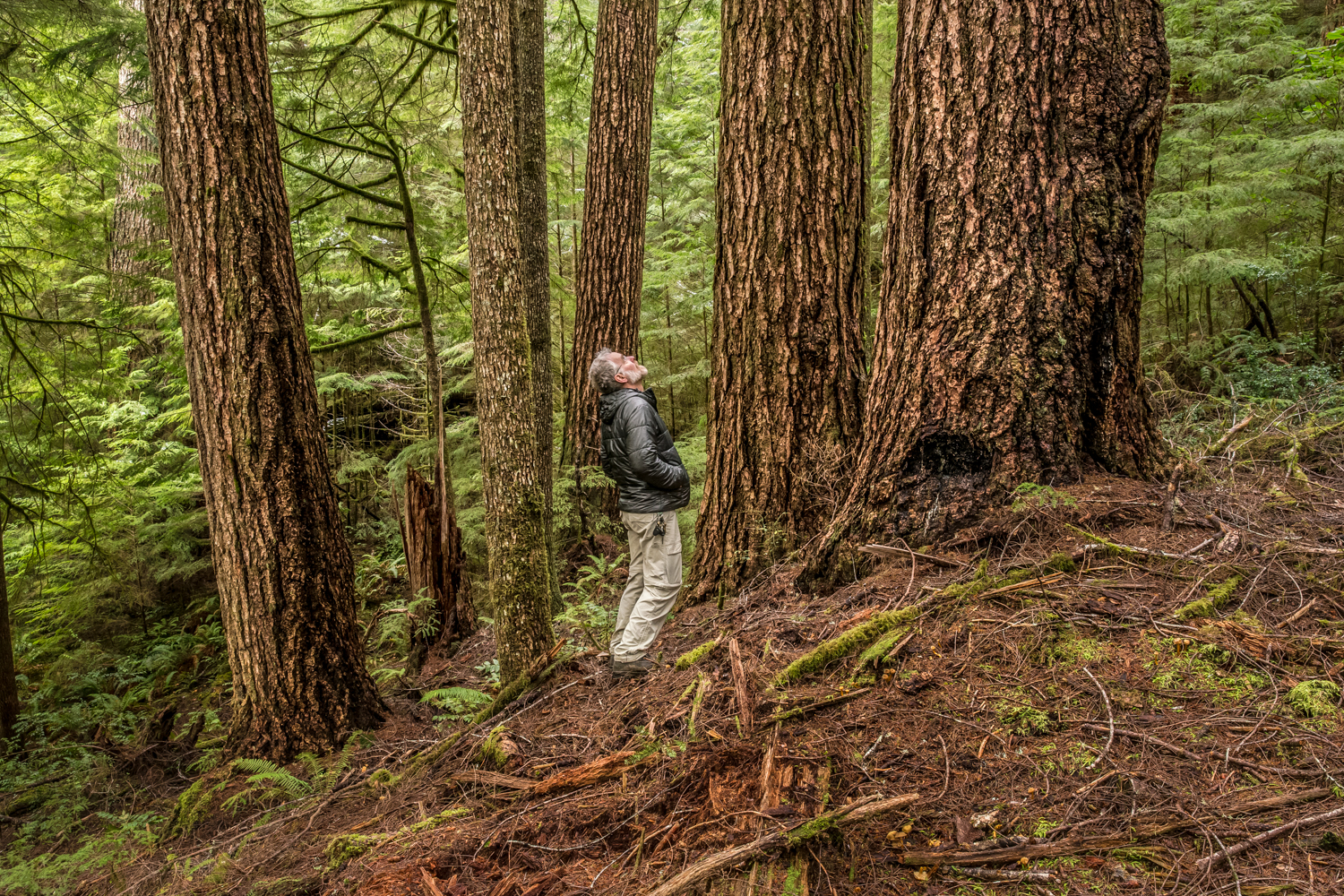
On January 17, the 2023 regular session kicked off in Salem. For Wild Salmon Center’s Oregon policy team, this session offers key opportunities to advance 2022’s historic conservation wins, while building relationships with legislators and new Governor Tina Kotek.
“This session we’ll be working hard to defend stronger protections for forests and fish, and make real progress to bring water management into the 21st century,” says WSC Oregon Policy Senior Program Manager Stacey Detwiler
We’ll be working hard to defend stronger protections for forests and fish, and make real progress to bring water management into the 21st century.
WSC Oregon Policy Senior Program Manager Stacey Detwiler
OUR 2023 LEGISLATIVE PRIORITIES AT A GLANCE
- Ensure sustainable funding for the Private Forest Accord and defend against efforts to undermine this historic agreement (2023-2025 Budget)
- Renew Oregon’s split-season instream leasing program for farmers and fish (HB 3164),
- Eliminate tax disincentives for split-season instream leasing program participation (HB 2971)
CONSERVATION OPPORTUNITIES: THE 2023-2025 RECOMMENDED BUDGET
On January 31, Governor Kotek released her administration’s recommended budget for the 2023-2025 biennium. An initial read-through by our policy team shows that conservation voices are represented in the Governor’s priorities. Now the negotiations start, and Detwiler notes that retaining these gains will take ongoing pressure from forest and fish advocates.
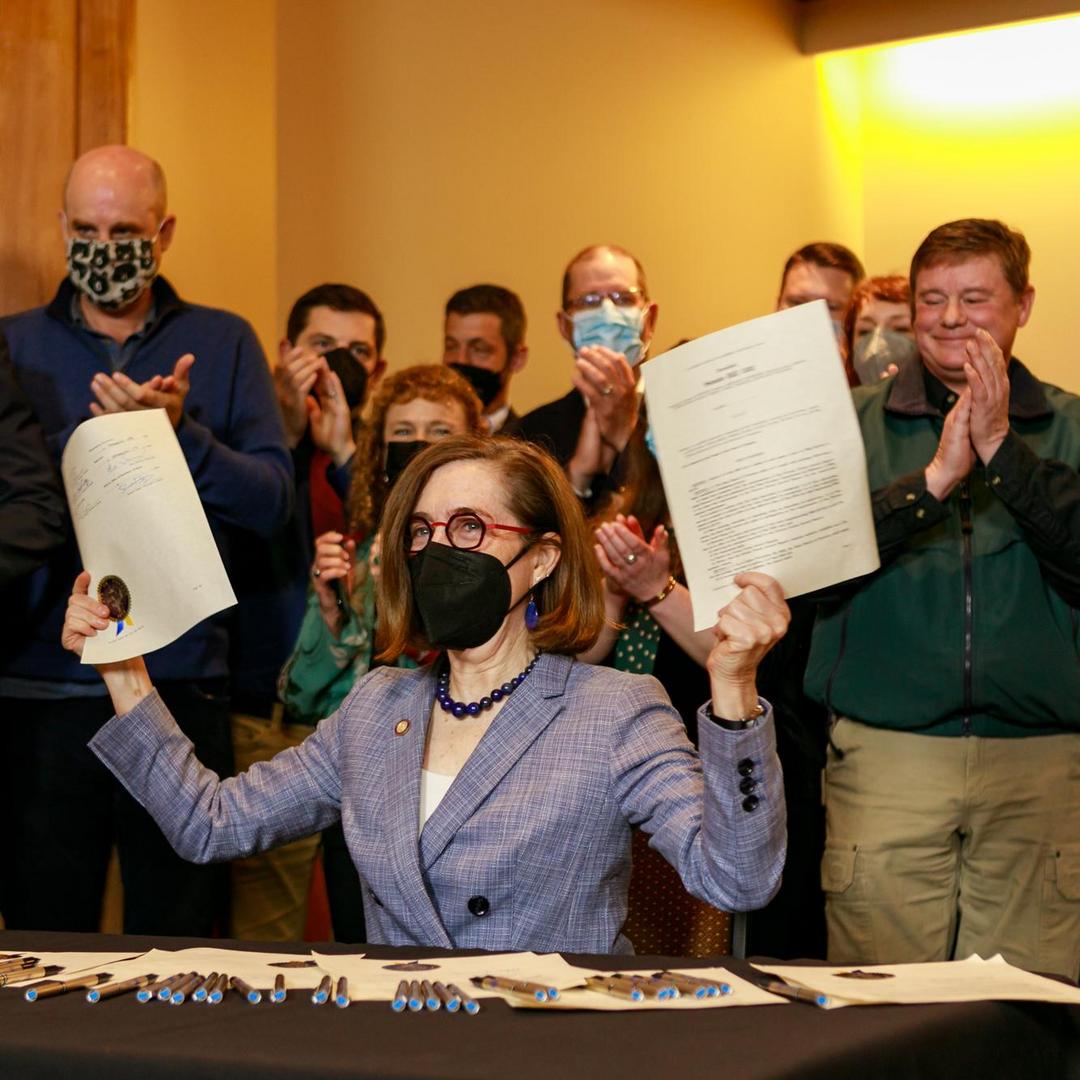
“We know that conservation is a core value for Oregonians in the passionate public engagement we see at legislative hearings and committee meetings,” Detwiler says. “The next few months will again give us some big opportunities to show up for forests, fish, and wildlife.”
The Governor’s recommended budget includes healthy funding for staffing and core programs to implement the historic Private Forest Accord, she says, but her team was disappointed to see shortfalls for adaptive management and new grant assistance programs for small forestland owners.
The budget also includes a $10 million water package to support data needs, infrastructure improvements, and increased equity and access to clean water across multiple state natural resource agencies.
Yet while the Governor’s budget largely retains current funding levels for core natural resource programs, Detwiler also notes that overall funding for natural resources agencies is down by 11 percent from the last biennium.
(Don’t want to miss an action opportunity? Sign up here for our Oregon Forest & Fish News monthly newsletter.)
The next few months will give us some big opportunities to show up for forests, fish, and wildlife.
WSC Oregon Policy Senior Program Manager Stacey Detwiler
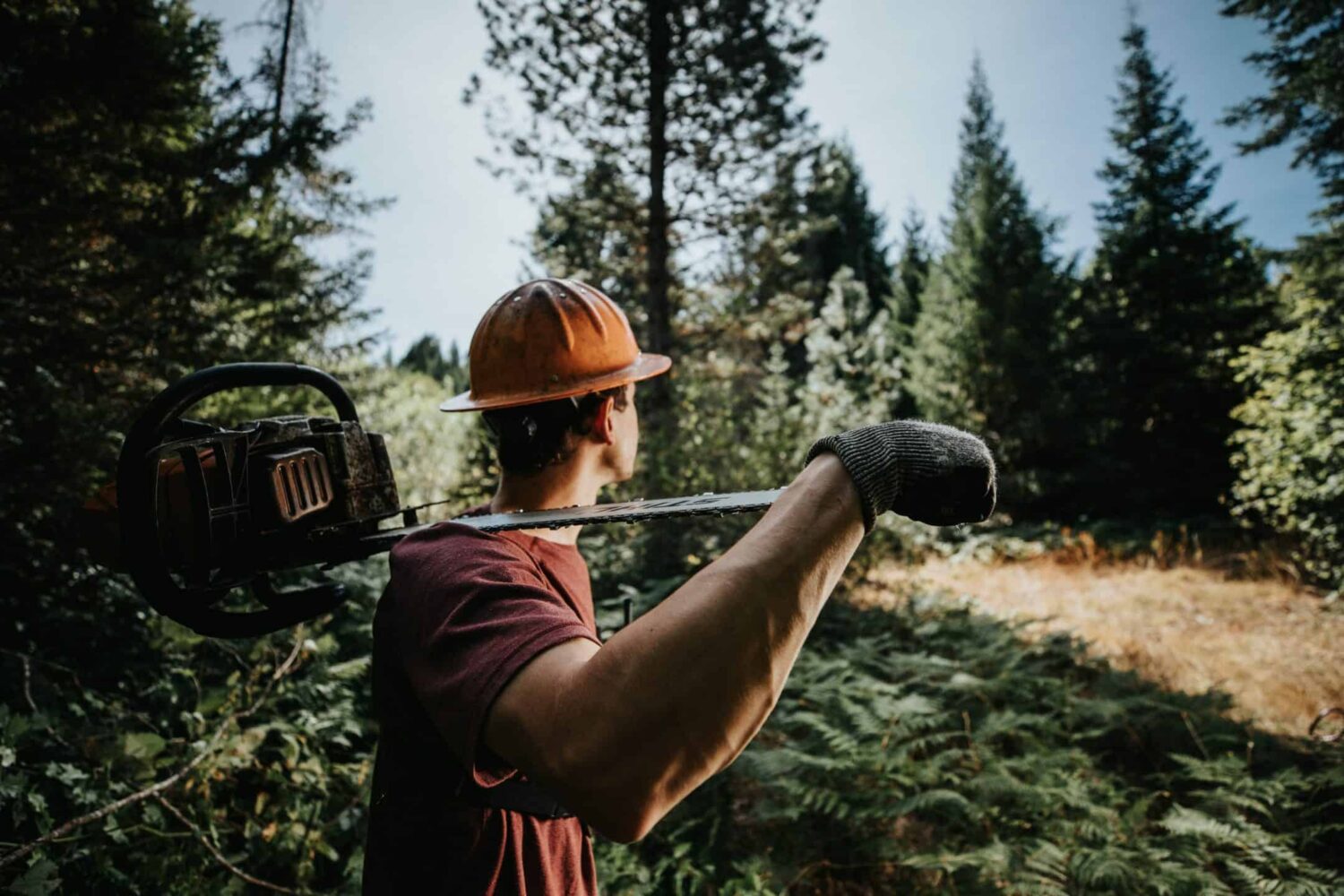
WATER POLICY OPPORTUNITIES: HOUSE BILLS 3164 & 2971
What’s on tap for water this session?
One potential win-win for fish and farmers is House Bill 3164, says WSC Oregon Water Policy Senior Program Manager Caylin Barter.
HB 3164 would make permanent Oregon’s split-season instream leasing program, which enables farms and fish to make use of streamflow at different times of year.
Currently, irrigated agriculture accounts for 85 percent of all surface water use in Oregon, with much of that use concentrated in summer, right when river flows are at their natural lowest point. Instream leases enable farmers and ranchers to temporarily change how they use their water rights.
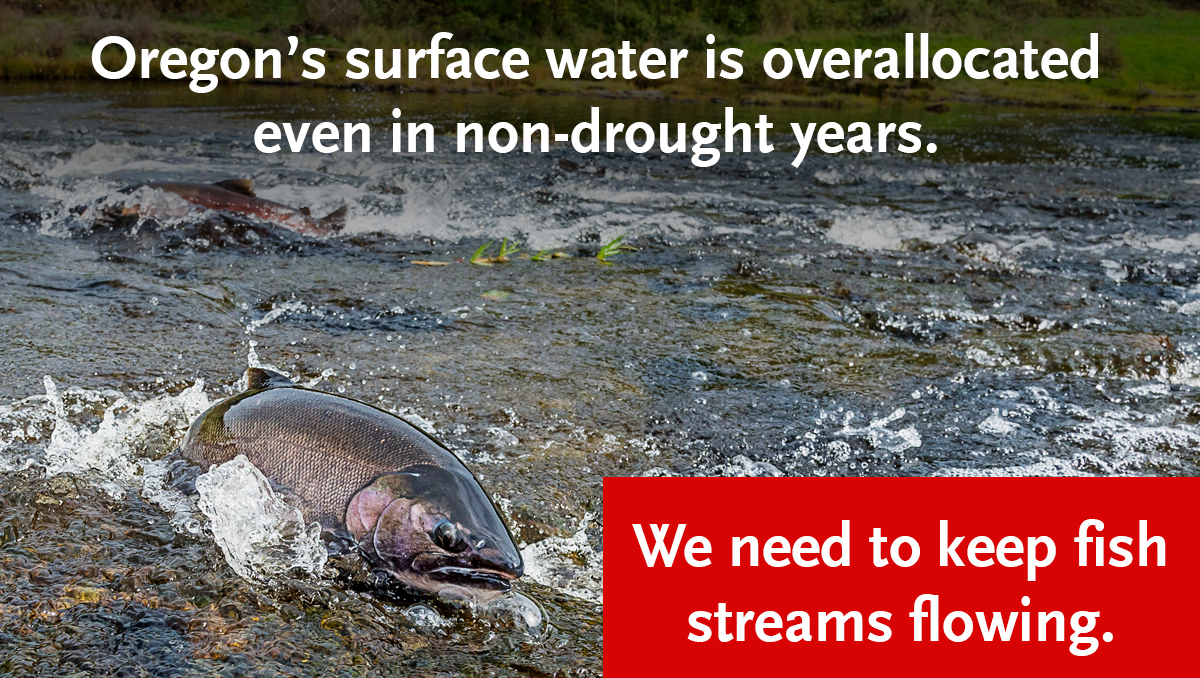
“Instead of using river flows to water a field, instream leases let farmers and ranchers use those same water rights to keep their local river flowing,” Barter says. “And split-season leases give them even greater flexibility: they can both irrigate AND protect fish flows in the same calendar year.”
With this program set to sunset in 2024, WSC is working to ensure that HB 3164 passes, enshrining split-season leasing as a reliable option for more agricultural producers to explore.
“Given the pinch of climate change on rivers, we need to make sure farmers and ranchers have a variety of tools available to manage water for the greatest benefit,” Barter says. “HB 3164 makes sure we don’t lose a great tool from the toolkit.”
Given the pinch of climate change on rivers, we need to make sure farmers and ranchers have a variety of tools available to manage water for the greatest benefit.
WSC Oregon Water Policy Senior Program Manager Caylin Barter
Another bill, HB 2971, addresses a related barrier to instream leasing by eliminating property tax dangers that farmers currently face if they temporarily use their water rights to restore flows instead of irrigating land.
“This simple fix will align Oregon’s water laws with its tax laws and allow more farmers and ranchers to consider leasing water rights instream,” Barter says.
These aren’t the only water bills up for discussion this session. With a new special report from the Oregon Secretary of State shining a light on the state’s underpreparedness to meet the challenges of drought, water insecurity, and climate change, Barter says there’s growing appetite within the Legislature and the Governor’s Office to productively address these problems.
“Oregon is in the midst of the worst megadrought in 1,200 years,” Barter says. “When it comes to stewarding our water supplies, our current investments are just a drop in the bucket of what’s needed. The good news is that we have a golden opportunity right now to improve the outlook for Oregon’s water future.”
(Learn more here about our Oregon Water Initiative.)
The good news is that we have a golden opportunity right now to improve the outlook for Oregon’s water future.
WSC Oregon Water Policy Senior Program Manager Caylin Barter
